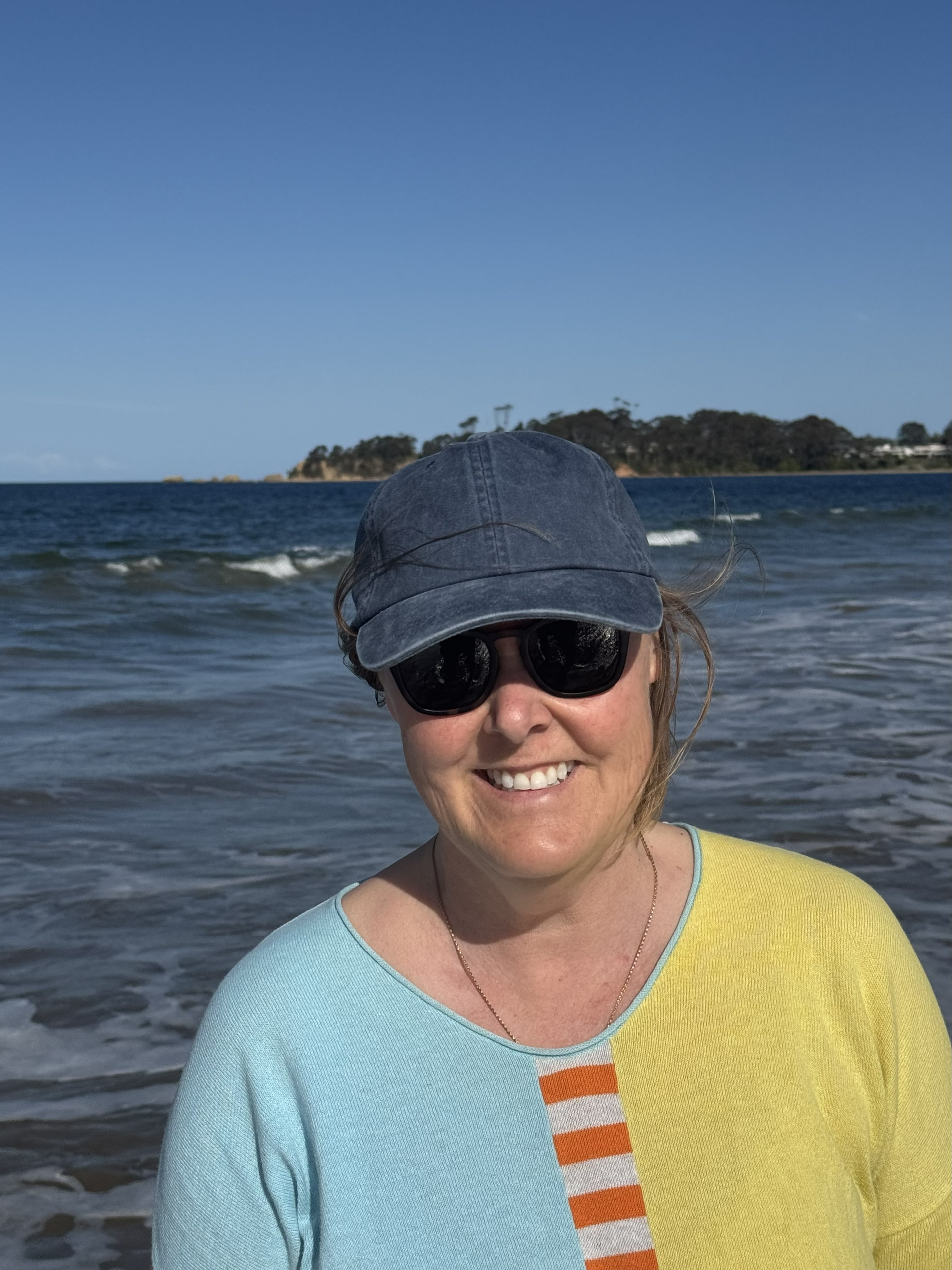-2.jpg)
The excitement running through every cell of my body was immense. Or was it fear? Perhaps it was both. One friend always reassures me that fear and excitement feel the same; it is simply a matter of telling your body which one it is. So, I decided to tell mine it was excitement.
One whole year of adventure. One whole year as me. No longer someone’s little sister. No longer a professional mother’s daughter. I was now just me. My oh my, what stories I would have to tell about seventeen-year-old me when I am sitting on the couch with my grandchildren one day.
I had no real idea what I was stepping into, yet there was a quiet trust that all would be fine. After all, I had survived boarding school: managing my own money, washing my own clothes, cooking for twenty hungry boarders on the occasional weekend, and even visiting a doctor on my own for the first time. Surely, I was equipped for whatever lay ahead.
Arrival
On a sweltering January afternoon, I landed in Argentina. Cars drove on the wrong side of the road, and people spoke as if they had smoked too many cigarettes. Maybe they had. Their words were fast, rhythmic, and entirely unfamiliar.
It hit me then: my limited vocabulary of just four words — sí, no, por favour, and gracias — was utterly useless when I could not decipher what anyone was saying. Were they speaking to me or at me? My only clues came from their expressive hands, which moved as quickly as the flood of words pouring from their mouths.
Not once did I think I would fail to survive or learn the language. Babies learn the language of wherever they are born, so surely I could too. That unwavering belief became my compass, carrying me and my host family through a wild year dotted with silly, memorable moments.
The First Shower
Their front door, a honey-golden slab of wood with an ornate knocker and oversized round handle, is etched in my memory as the warmest welcome to a safe space I could call home for a year. After the long journey from the farm to the city, then across the world, all I wanted was a shower.
But how to ask for one?
I pointed my fingers downward like jellyfish tentacles, raised my arm above my head, and made a “shoooooshhhh” sound. It was the best impromptu charade of a shower I could muster. Cue the first round of laughter.
They knew instantly what I meant, though I had no idea their English was excellent and I could have simply asked in my own language.
“Would you like a shower?” asked my host sister kindly, taking me by the arm to the bathroom.
It was an extraordinarily pink bathroom. The toilet, the other toilet — what was that thing? — the basin, even the tiles, all pink. Not like my plain cream bathroom at home or the white one at boarding school. And wallpaper. Actual pink, ornately patterned wallpaper.
The second toilet puzzled me. It had a hose with a little nozzle and no proper seat. Was it for washing one’s feet? Exhausted and bewildered, I stepped into the shower. C was for cold, right? Wrong. Whatever it stood for, it was not cold. F, however, was definitely foe for freezing. I hoped my startled squeal had not been too loud.
A pang of homesickness flickered through me. Even something as simple as H and C on the taps would have been a comfort.
I looked up. I saw daylight through the roof tiles. Where was the ceiling? Where was the exhaust fan? Why could I see daylight? What about the rain?
As the water ran, I shut my eyes for a moment. Behind my eyelids, the familiar world returned: Dad’s golden stubble after reaping, Mum slicing fresh bread at the kitchen bench. I could almost smell home. A small moment of grounding in an unfamiliar world.
Language Lessons
Mondays and Tuesdays were the longest school days for seniors, and by the time I returned home I was starving. All the afternoon body-surfs across the week would culminate in immense hunger pangs by Tuesday afternoon. I would even eat the lentejas on Tuesdays, something I would never have done at home.
One Tuesday afternoon, I walked across the Catholic all-girls’ schoolyard with a kind nun, Sor Fanny — a name that, to my teenage mind, provoked silent giggles. By then, my vocabulary had grown enough to attempt short conversations, somewhat disjointed like a toddler’s, but a conversation nonetheless.
“¿Cómo estás?” she asked.
“Tengo hombre,” I replied confidently, rubbing my belly to emphasise my hunger. I felt proud. I had formed a grammatically correct sentence without a dictionary in sight.
She paused, puzzled, then began to laugh. “Oh, you mean hambre.”
The heat rose to my cheeks. I had just told the nun I had a man, not hunger. Mortified, I tried to correct myself. “Oh, tengo embarazada,” I blurted, assuming the word for “embarrassed” would sound similar in Spanish.
Wrong again. More laughter followed.
“What did I say?” I asked, half laughing at myself.
“Embarazada means pregnant,” she replied kindly.
I joined in the laughter. What else could I do? Not only had I told a nun I had a man, I had then announced I was pregnant. Perhaps learning a little more of the language before arrival would have been wise. Clearly, sí, no, por favour, and gracias were not enough.
The Voice Box
One Sunday afternoon we were gathered around the dining table playing cards. It became a cherished ritual with two sisters, both parents, and occasionally the younger children darting in and out of the room. In my own family back home, such moments were rare; my brothers were much older and most often away.
Music played as we shuffled the cards, but that day the stereo sounded dreadful. Everyone fiddled with the bass, treble, and every other knob that might have been tampered with by curious little hands. Nothing helped.
I wanted to offer my suggestion, but too lazy to search for “speaker” in my dictionary, I decided to improvise.
“I think it’s the voice box of the stereo,” I said.
Five people, including the maid, erupted into laughter. They knew exactly what I meant, laughing not at me but at my creative phrasing. They corrected me gently, amused by my resourcefulness.
The Milk Crate
It was on another Sunday afternoon, while playing cards, that I asked how much longer it would be until the front passenger seat was replaced with its new upholstered one. The adventure of travelling a few kilometres down the highway to and from school each day, wobbling about on an upturned milk crate with or without a seatbelt, was starting to lose its excitement.
Seatbelts were optional any day in that era, and so was a front passenger seat, apparently. Luckily, I was a farm kid and did not fuss too much about safety. Comfort, though, was another thing. My core muscles got an extra workout when my under-aged, unlicensed sister sped around the roundabout with that grin on her face.
Too lazy to search the dictionary for the word “upholstered”, I decided to risk improvisation once again. I asked when the clothes for the car seat would be ready.
Once again, there was an instant outburst of raucous laughter. They understood exactly what I meant, praised my creativity, and lovingly corrected me.

Messy Action
If I had waited until I was fluent in Spanish before leaving Australia, I would never have lived these moments or met these wonderful people.
That year taught me the value of messy action over hesitation, of diving in imperfectly and learning as you go.
Upon my return, I studied Spanish at university while completing my teaching degree, leading to fifteen years of teaching Spanish in schools across South Australia.
It all began with just four words — and a whole lot of belief that the adventure would be fun.
_(7)-2.jpg)
 (7).jpg)
-3.jpg)
-2.jpg)
-3.jpg)
-3.jpg)
-2.jpg)
-2.jpg)

-4.jpg)